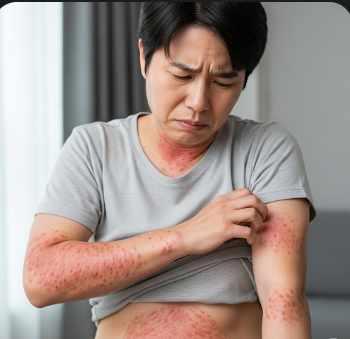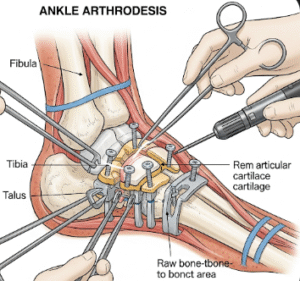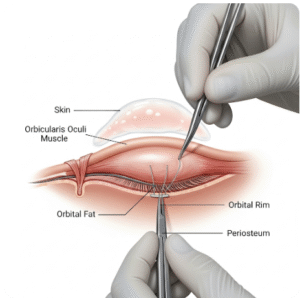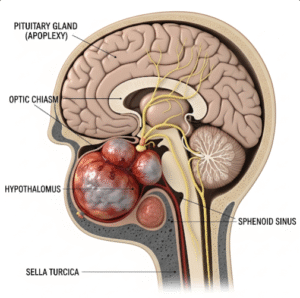Overview
Hives, also known as urticaria, are raised, itchy, red or skin-colored welts that appear suddenly on the skin. They vary in size, shape, and location and may appear anywhere on the body. Hives are usually caused by an allergic reaction, stress, infection, or environmental triggers.
In South Korea, dermatology clinics and allergy specialists offer comprehensive evaluation, allergy testing, medications, and patient education to manage acute or chronic hives effectively.
Key Facts
🟢 ➤ Hives are a common skin condition affecting people of all ages.
🟢 ➤ They may appear suddenly (acute) or persist for more than six weeks (chronic).
🟢 ➤ Causes include allergies to foods, medications, insect bites, infections, or autoimmune conditions.
🟢 ➤ Symptoms include raised welts, itching, swelling, and sometimes burning sensations.
🟢 ➤ Diagnosis involves medical history, physical examination, allergy tests, and occasionally blood tests.
🟢 ➤ Treatment ranges from avoiding triggers and using antihistamines to advanced therapies for chronic cases.
What are Hives?
Hives are temporary, raised bumps on the skin caused by the release of histamine and other chemicals from mast cells, usually in response to a trigger.
➤ They appear suddenly and may last from a few minutes to several hours, sometimes forming larger patches.
➤ Acute hives often resolve without treatment, while chronic hives may persist for months or years.
➤ Hives can occur alone or with angioedema, which is deeper swelling around the eyes, lips, or throat.
Symptoms Related to Hives
The main symptom is itchy, raised welts, but additional symptoms may accompany the condition:
🟢 ➤ Red or skin-colored bumps or plaques that appear suddenly.
🟢 ➤ Intense itching or burning sensations on the affected areas.
🟢 ➤ Swelling of the lips, eyelids, or face in some cases (angioedema).
🟢 ➤ Lesions that change shape, merge, and move to different areas over hours.
🟢 ➤ Chronic hives may cause fatigue, sleep disturbance, or emotional distress due to prolonged discomfort.
Causes / Possible Causes
Hives occur due to histamine release from the immune system and can have multiple triggers:
Allergic Reactions
➤ Foods such as shellfish, nuts, eggs, or dairy products.
➤ Medications including antibiotics, aspirin, or NSAIDs.
➤ Insect stings or bites.
Infections and Illnesses
➤ Viral infections are common triggers in children.
➤ Bacterial or fungal infections may also cause hives.
Physical Triggers
➤ Pressure on the skin, cold or heat exposure, sunlight, or water contact.
Chronic and Autoimmune Causes
➤ Chronic idiopathic urticaria: hives with no identifiable cause.
➤ Autoimmune conditions where the immune system attacks healthy tissues.
Stress and Other Factors
➤ Emotional stress, fatigue, or hormonal changes may exacerbate hives.
When Should I See a Doctor?
Consult a doctor if:
🟢 ➤ Hives persist for more than six weeks (chronic hives).
🟢 ➤ Associated with swelling of the face, lips, tongue, or throat (possible anaphylaxis).
🟢 ➤ Accompanied by difficulty breathing, dizziness, or rapid heartbeat.
🟢 ➤ There is severe itching that interferes with sleep or daily activities.
🟢 ➤ Hives occur frequently without an identifiable trigger, suggesting chronic or autoimmune causes.
Early evaluation ensures timely treatment, prevention of severe allergic reactions, and improved quality of life.
Care and Treatment
Treatment depends on type, severity, and triggers:
Home and Lifestyle Measures
➤ Avoid known triggers, such as specific foods, medications, or environmental allergens.
➤ Apply cool compresses to soothe itching.
➤ Wear loose-fitting, breathable clothing.
➤ Reduce stress through relaxation techniques or counseling.
Medical Treatments
➤ Antihistamines are first-line therapy for most cases.
➤ Corticosteroids for severe or persistent episodes.
➤ Leukotriene receptor antagonists or immunomodulators for chronic or refractory cases.
Advanced and Specialized Care in Korea
➤ South Korean dermatology and allergy clinics provide allergy testing, immunotherapy, and advanced medications for chronic urticaria.
➤ Patients receive personalized management plans including trigger avoidance, medication adjustment, and follow-up monitoring.
➤ Chronic hives are managed through multidisciplinary care, including dermatologists, allergists, and nutritionists.
Highlights (Clean Green Arrow Version)
🟢 ➤ Hives are raised, itchy welts on the skin caused by histamine release.
🟢 ➤ Symptoms: red or skin-colored bumps, intense itching, angioedema, lesions that move, and chronic discomfort.
🟢 ➤ Causes: allergies, infections, physical triggers, autoimmune disorders, or stress.
🟢 ➤ Seek medical care for persistent hives, swelling of the face/lips/throat, difficulty breathing, or chronic idiopathic urticaria.
🟢 ➤ Treatments include trigger avoidance, antihistamines, corticosteroids, immunotherapy, and lifestyle modifications.
🟢 ➤ South Korea offers advanced dermatology and allergy care, including testing, personalized management, and long-term monitoring for acute and chronic hives.













